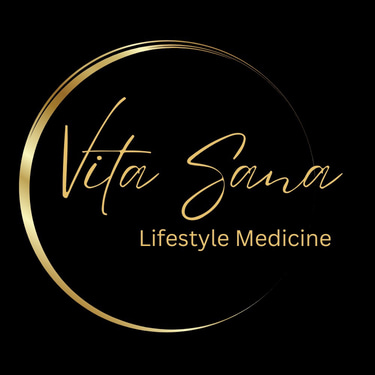Kindness and Connection: Acts of Service for Mental Health
#VITASANALM#ACLM#6PILLARS#LIFESTYLEMEDICINE
Russell Smith DSc., PA-C, DipACLM
11/15/20252 min read


As the holidays approach, we’re reminded that true wellbeing isn’t just about nutrition or exercise — it’s also about connection. In fact, one of the most powerful ways to boost your mental health is through kindness and acts of service.
Giving to others doesn’t just make the world a little brighter — it actually changes your brain chemistry, reduces stress, and strengthens your own sense of purpose and belonging.
The Science of Kindness
When you do something kind — whether it’s volunteering, helping a neighbor, or simply offering a smile — your brain releases “feel-good” hormones like oxytocin, serotonin, and dopamine.
These chemicals:
🧡 Lower stress and anxiety
🌿 Reduce blood pressure and inflammation
😌 Boost mood and emotional resilience
🤝 Strengthen social bonds
Researchers have found that people who regularly engage in altruistic acts often experience greater happiness, life satisfaction, and longevity.
Kindness, it turns out, is a powerful form of medicine.
Acts of Service: Big and Small
You don’t need to make grand gestures to experience the benefits of kindness. Small, consistent actions have a huge impact — for both the giver and the receiver.
Try these ideas this season:
💬 Reach out to someone who might be lonely or grieving this time of year.
🥣 Cook a healthy meal for a friend or neighbor in need.
🧺 Volunteer at a local food pantry or community garden.
💌 Write a note of gratitude to a coworker or healthcare provider.
🌳 Pick up litter during your morning walk.
🎁 Donate gently used clothing or books to local shelters.
Even brief moments of kindness — holding a door, offering a genuine compliment — send ripples of positivity through your community.
The Connection Between Service and Stress
Acts of service also help us shift focus away from our own worries. When we help others, we activate the parasympathetic nervous system — the body’s natural “rest and restore” mode.
This lowers cortisol levels, slows heart rate, and helps regulate mood. It’s one of the reasons people often describe volunteering or helping others as “grounding” or “centering.”
In lifestyle medicine, this is a key pillar: connection is not just social — it’s therapeutic.
Practicing Intentional Kindness
To make kindness part of your self-care routine, try:
Setting a “kindness goal” each week (e.g., one small act of service).
Keeping a gratitude or kindness journal to reflect on meaningful moments.
Engaging in family or community service traditions during the holidays.
Practicing self-kindness, too — rest, forgiveness, and compassion start within.
Lifestyle Medicine Takeaway
Kindness isn’t just good for the heart — it’s good for your health. Through simple acts of service, we can reduce stress, improve mood, and strengthen the web of connection that keeps our communities — and ourselves — well.
This season, remember: small acts, done with great love, create lasting change.
At Vita Sana Lifestyle Medicine we help individuals and families live healthier, more vibrant lives through evidence-based lifestyle medicine — including nutrition, movement, stress management, and community connection.
If you’re ready to take the next step toward better health, we’d love to support you.
👉Schedule a free 15-minute wellness consultation
